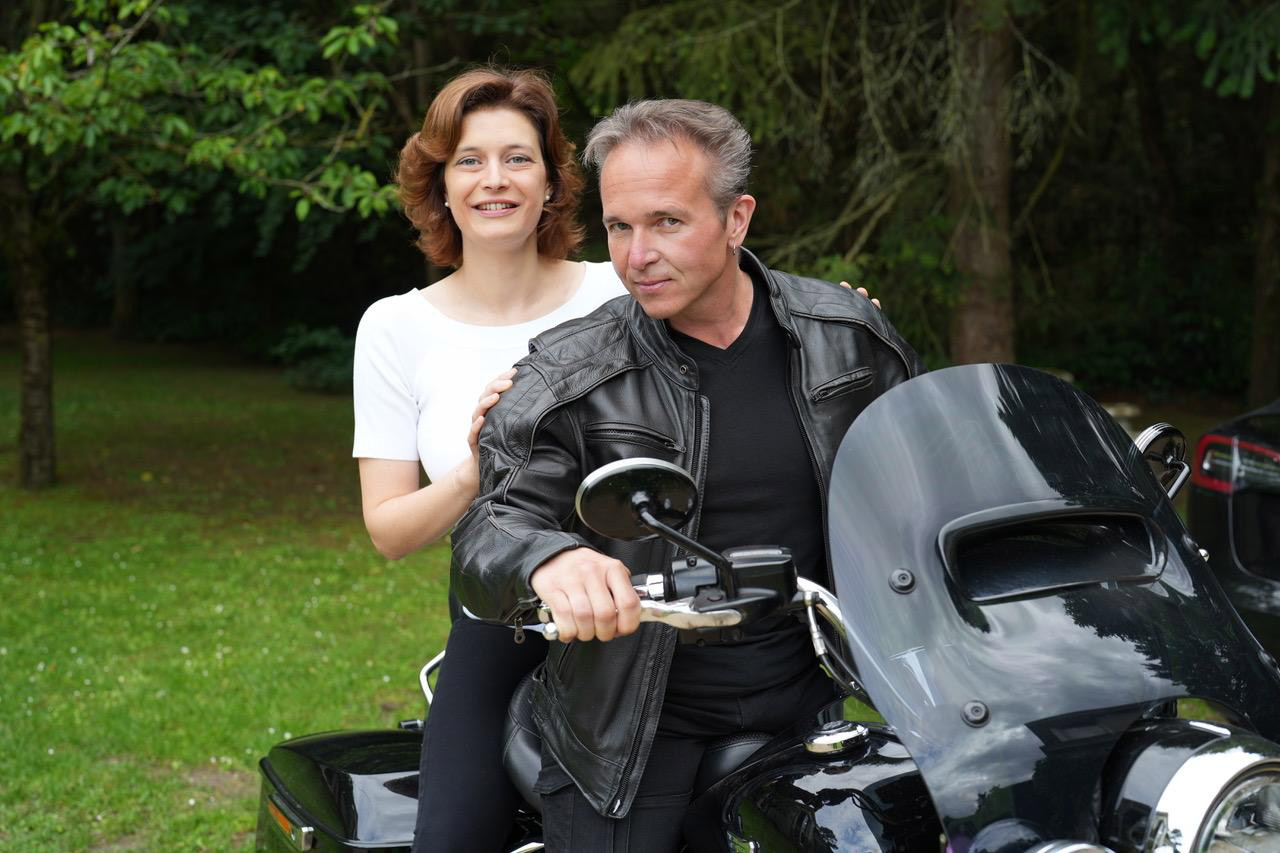AN EASTERN TRIP
Sabine Weyer | Dimitri Maslennikov

Photo: Marco Berdugo
„What warmth and emotion emanate from this duo’s performance! Dimitri Maslennikov lets his cello tone sing and bloom, responding to every nuance with alertness. Sabine Weyer navigates the abundance of notes with foresight and superior strength. Together, they forge an intensely lyrical continuum through their vibrant interaction.“
Orchestergraben
„Sabine Weyer evokes distilled emotions embedded in the scores—rage, pain, melancholy, dark passions, despair, hopelessness, as well as idyllic calm, gentle melancholy, tender humility, or fantastic visions—with her superb touch, intuitive musicality, and finely nuanced tonal palette. Overwhelming discoveries, sharp insights, and an exuberantly passionate piano performance make for a rare and convincing combination.“
feuilletonscout.com
RÓSZA
KÓDALY
PROKOFIEV
SHCHEDRIN
The cellist Dimitri Maslennikov and pianist Sabine Weyer present a unique program for cello and piano on their new CD, featuring works by prominent 20th-century composers. This recording offers chamber music masterpieces by 20th-century masters Miklós Rózsa, Zoltán Kodály, Sergey Prokofiev, and Rodion Shchedrin, interpreted with exceptional artistry by a duo widely praised for their outstanding performances. A truly captivating release awaits!
The program reflects the profound appeal of the cello—an instrument that Antonín Dvořák famously described as „a piece of wood that screeches on top and growls on the bottom.“ While not the most flattering description, this notion has been disproven many times, not least through Beethoven’s groundbreaking works for the cello. The 20th century, too, contributed significantly to the repertoire for cello and piano, as demonstrated by pieces like Miklós Rózsa’s Duo for Cello and Piano.
Born in Budapest, Rózsa’s wealthy family recognized his remarkable musical talent early on, nurturing his instincts as a budding composer. His duo is a subtle and distinctive work that enriches the chamber music repertoire, much like Zoltán Kodály’s Sonata for Cello and Piano. The cello’s melodic line flows with folk-inspired lyricism and a wealth of expressive variety, making it one of Kodály’s most original and compelling early masterpieces.
Sergei Prokofiev also delivered a gem with his Sonata in C Major for Cello and Piano, composed at just 22 years old and inspired by the legendary Mstislav Rostropovich. After attending a concert by Rostropovich, Prokofiev was so captivated that he resolved to write a new work for him. The resulting sonata is undoubtedly one of the composer’s finest chamber music pieces. Its debut, naturally performed by Rostropovich, was such a success that it inspired Prokofiev to compose his Cello Concerto Op. 125 and Concertino Op. 132.
The fourth featured composer is Rodion Shchedrin, a younger contemporary of Prokofiev, whose music is marked by its immediacy and directness of expression. Shchedrin often reinterpreted existing works, adapting them for new audiences and performers. In 1973, he reimagined Tango No. 2 from Op. 165 by Spanish composer Isaac Albéniz, originally written in 1890. Shchedrin’s version, later arranged for cello and piano by Walter Despalj, brilliantly captures the spirit of Spain in its evocative and vibrant essence.
Praised by International Piano Magazine as „one of the most important young pianists of today,“ Sabine Weyer has displayed extraordinary musical talent since childhood. After her foundational training at the Conservatory of Esch-Alzette in Luxembourg, she studied in France, Belgium, and the UK, enriched by the guidance of luminaries such as Paul Badura-Skoda, Oxana Yablonskaya, and Aquiles delle Vigne. Weyer combines a „searching intellect with fearless technique“ (International Piano Magazine, March 2021). Her discography has garnered numerous awards, and her chamber music collaborations include celebrated artists such as Aleksey Semenenko, Gary Hoffman, and Julien Beaudiment. Since 2015, Weyer has served as a professor of piano at the Conservatoire de la Ville de Luxembourg.
Dimitri Maslennikov, born in St. Petersburg, split his musical education between Russia and France. At the age of 12, he won the International Young Soloists Competition in Moscow and the Concertino Praha competition in 1992. He has also been honored with the Rostropovich and Tchaikovsky Prizes. In 1994, he received a three-year scholarship from the French government to study at the Conservatoire National Supérieur de Musique in Paris, where he graduated with unanimous first prize honors. Maslennikov has performed worldwide, including for Queen Elizabeth II and at prestigious festivals such as Schleswig-Holstein and Rheingau. His recording of Tchaikovsky’s Rococo Variations with the Deutsches Symphonie-Orchester under Christoph Eschenbach has been highly acclaimed.